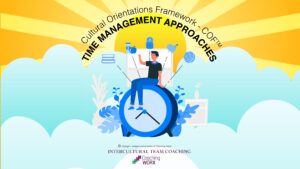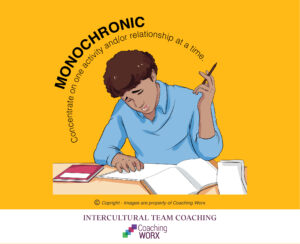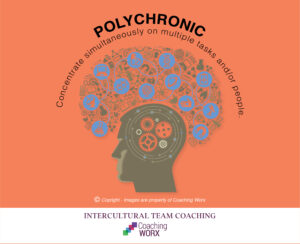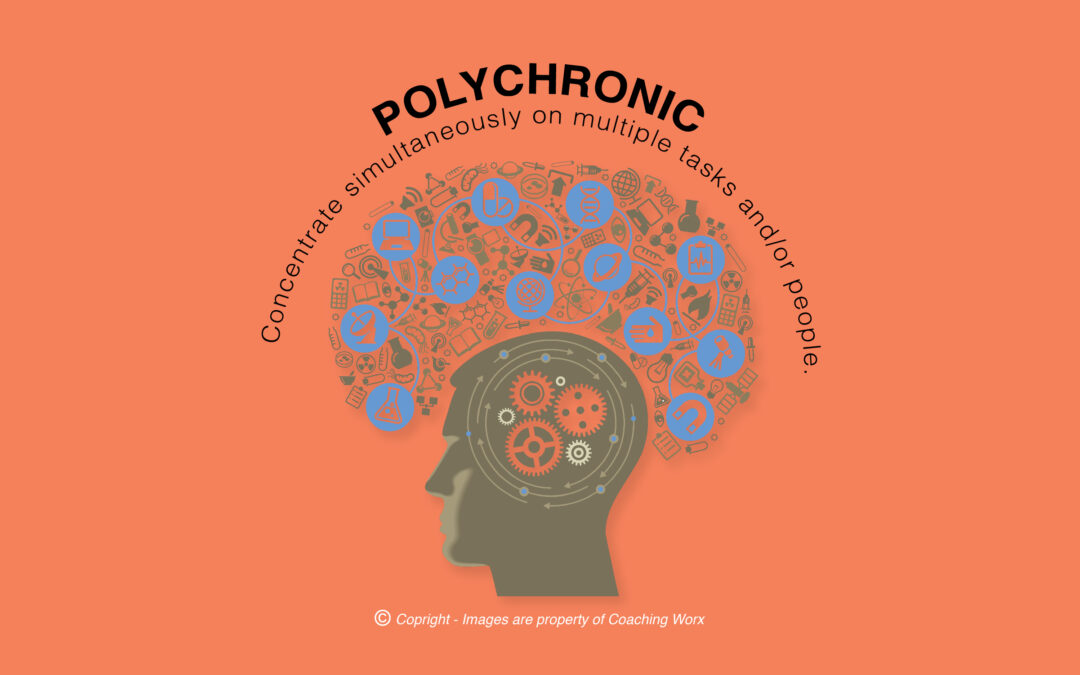INTERCULTURAL TEAM COACHING
Do you belong to an organization that is looking for that one special nudge that could take you over the top in your DEI & J program?

The Cultural Orientations Framework COF™ Assessment is the ground breaking tool designed by Professor Philippe Rosinski does just that. The glaring results identifies the various Cultural Orientations that we prefer to lean on in our everyday life and highlights the implicit differences between individuals.
Today, the focus is on the Category of “Time Management Approaches” with the dimension of “Monochronic/Polychronic” which are two different ways of approaching time, often associated with different cultures and work styles.

Monochronic Time Management: This approach is commonly associated with Western cultures and emphasizes the importance of punctuality and deadlines. In a monochronic approach, time is viewed as a limited resource that must be used efficiently. Individuals tend to focus on one task at a time, and interruptions or multitasking can be seen as inefficient. Meetings and appointments are scheduled in advance and are expected to start and end on time. Time is often segmented into specific blocks or increments, such as hours or minutes.

Polychronic Time Management: This approach is commonly associated with non-Western cultures and places less emphasis on punctuality and strict schedules. In a polychronic approach, time is viewed as a flexible resource that can be used for multiple tasks at once. Interruptions and multitasking are common and expected, and social relationships may take priority over deadlines. Meetings and appointments may be scheduled more loosely, with a greater emphasis on relationship building and informal discussion. Time may be viewed in broader increments, such as days or weeks.
One can leverage both Monochronic and Polychronic orientations by using both as appropriate in different situations.
In a team where individuals have different orientations towards time regardless of their backgrounds much conflict may arise due to a lack of understanding of each others orientation. The Benefit of the COF™ Assessment is that it will create an awareness of our individual and team approaches to managing time and facilitates finding the balance so that with understanding we create a conducive workplace where everyone is included and feels a greater sense of belonging regardless of explicit differences.
To learn more, you may visit COFassessment.com. If you or your organization is interested in a COF™ Assessment you may contact me at [email protected].
Source: “Coaching Across Cultures” Philippe Rosinski.

